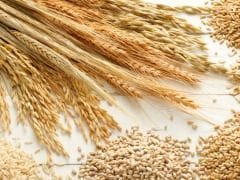

According to a recent study, increasing intake of dietary fibre could improve the condition of patients suffering from hypertension and diabetes.

A diet that lacks enough dietary fibre directly affects the gut microbiota, which further deteriorates the protective mucus lining in the colon, the study reads.

As per the study, dietary fibre intake may be linked with reduced risk of depression, in premenopausal women.

The study also found that gluten-free products often have elevated sugar levels compared to their gluten-containing counterparts.

Increasing consumption of fibre-rich foods can lower risk of both cardiovascular disease (CVD) and coronary heart disease (CHD), a new study has found.Researchers at the University of Leeds reviewed literature published since 1990 in healthy ...

If the findings of a latest study are to be believed, heart patients who consume more dietary fibre tend to have healthier gut bacteria, which is associated with reduced risk of death or need of ...

A diet missing soluble fiber promotes inflammation in the intestines and poor gut health, leading to weight gain, says a new study.

Dietary fibre from different sources benefit us more than those who limit their intake to a single source or follow a low-fibre diet.

A treasure-trove of nutrients, this winter vegetable has always been a popular choice for regulating blood sugar and managing diabetes.

Fibre is a complex carbohydrate, which we usually get from vegetables, fruits and whole grains. Foods that are rich in fibre are known to promote digestion by adding bulk to the stool. This helps in ...